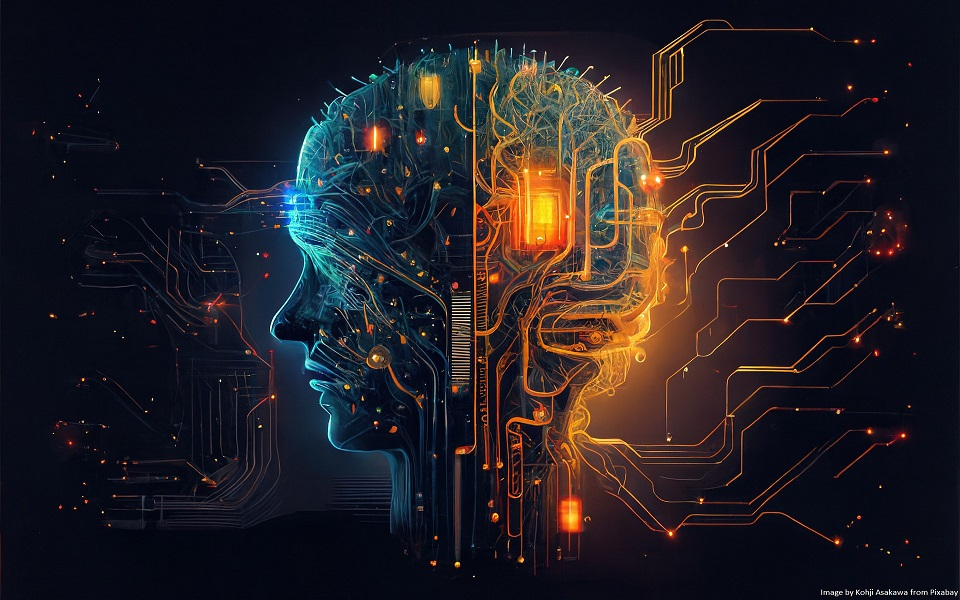Lower-cost AI tools could improve jobs by giving more employees access to the technology.
- Companies like DeepSeek are establishing affordable AI that could help some workers get more done.
- There might still be threats to employees if companies turn to bots for easy-to-automate jobs.
Cut-rate AI may be shocking industry giants, however it's not likely to take your job - at least not yet.

Lower-cost techniques to establishing and training expert system tools, from upstarts like China's DeepSeek to heavyweights like OpenAI, will likely enable more people to acquire AI's productivity superpowers, market observers told Business Insider.
For lots of workers worried that robots will take their tasks, that's a welcome development. One scary prospect has been that discount AI would make it much easier for employers to switch in inexpensive bots for pricey people.
Obviously, that could still take place. Eventually, the innovation will likely muscle aside some entry-level workers or those whose roles largely consist of recurring tasks that are easy to automate.
Even greater up the food cycle, personnel aren't always devoid of AI's reach. Salesforce CEO Marc Benioff stated this month the company might not hire any software application engineers in 2025 since the firm is having so much luck with AI representatives.
Yet, broadly, for many employees, lower-cost AI is most likely to expand who can access it.
As it ends up being more affordable, it's easier to incorporate AI so that it ends up being "a sidekick instead of a risk," Sarah Wittman, an assistant professor garagesale.es of management at George Mason University's Costello College of Business, told BI.
When AI's rate falls, she said, "there is more of a prevalent approval of, 'Oh, this is the way we can work.'" That's a departure from the mindset of AI being an expensive add-on that companies may have a difficult time validating.
AI for all
Cheaper AI might benefit employees in areas of an organization that often aren't seen as direct profits generators, Arturo Devesa, chief AI designer at the analytics and data business EXL, informed BI.
"You were not going to get a copilot, maybe in marketing and HR, and now you do," he stated.
Devesa said the path revealed by companies like DeepSeek in slashing the expense of developing and carrying out big language models alters the calculus for employers deciding where AI might settle.
That's because, for the majority of large companies, annunciogratis.net such decisions consider cost, accuracy, and speed. Now, with some expenses falling, the possibilities of where AI could show up in a work environment will mushroom, Devesa said.
It echoes the axiom that's unexpectedly everywhere in Silicon Valley: "As AI gets more efficient and available, we will see its use skyrocket, turning it into a product we simply can't get enough of," Microsoft CEO Satya Nadella wrote on X on Monday about the so-called Jevons paradox.
Devesa stated that more efficient workers will not necessarily lower need for people if employers can develop new markets and new sources of revenue.
Related stories
AI as a commodity
John Bates, CEO of software business SER Group, told BI that AI is ending up being a commodity much quicker than anticipated.
That indicates that for jobs where desk employees might require a backup or someone to confirm their work, affordable AI may be able to action in.
"It's great as the junior knowledge worker, the thing that scales a human," he said.
Bates, a former computer technology teacher at Cambridge University, said that even if a company currently prepared to utilize AI, the reduced costs would enhance return on financial investment.
He also stated that lower-priced AI could provide small and medium-sized companies easier access to the innovation.
"It's simply going to open things as much as more folks," Bates said.
Employers still require humans
Even with lower-cost AI, human beings will still have a place, said Yakov Filippenko, CEO and founder of Intch, which assists experts find part-time work.
He stated that as tech firms complete on price and drive down the cost of AI, many employers still won't aspire to eliminate employees from every loop.
For qoocle.com instance, Filippenko stated business will continue to require designers because someone needs to confirm that new code does what a company wants. He said companies work with recruiters not simply to finish manual labor; managers likewise desire an employer's opinion on a candidate.
"They spend for trust," Filippenko said, describing companies.
Mike Conover, CEO and founder of Brightwave, a research study platform that utilizes AI, told BI that a great chunk of what people do in desk jobs, in specific, includes tasks that might be automated.
He stated AI that's more extensively readily available due to the fact that of falling costs will allow people' creative abilities to be "released up by orders of magnitude in terms of the elegance of the issues we can resolve."
Conover thinks that as rates fall, AI intelligence will likewise infect even more areas. He stated it's comparable to how, decades ago, the only motor in a cars and truck might have been under the hood. Later, as electric motors shrank, they showed up in places like rear-view mirrors.

"And now it remains in your toothbrush," Conover said.
Similarly, Conover said omnipresent AI will let professionals develop systems that they can tailor to the requirements of jobs and workflows. That will let AI bots handle much of the grunt work and allow employees happy to explore AI to handle more impactful work and perhaps move what they're able to concentrate on.








